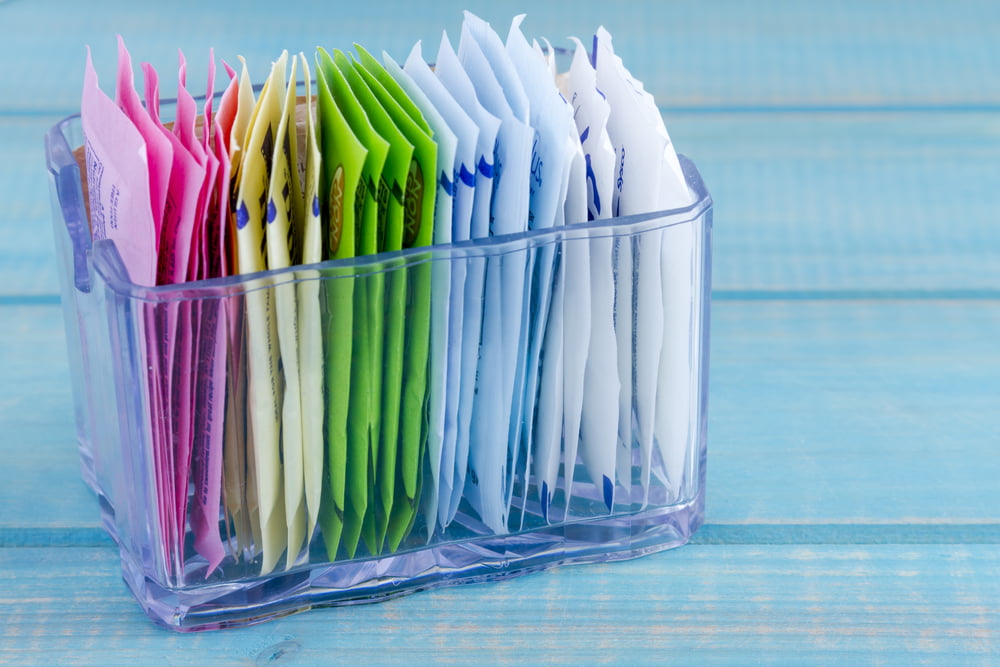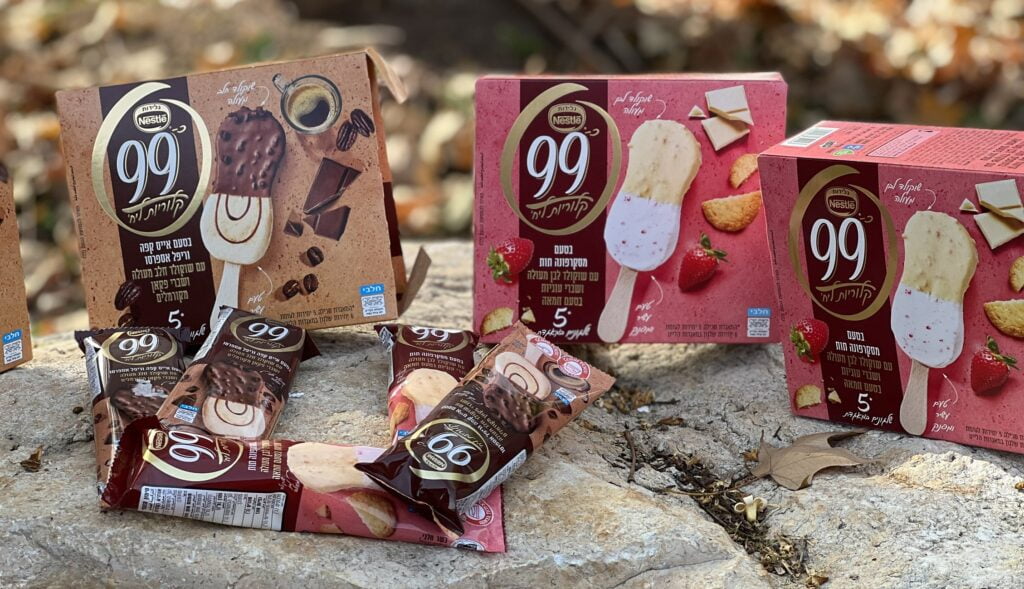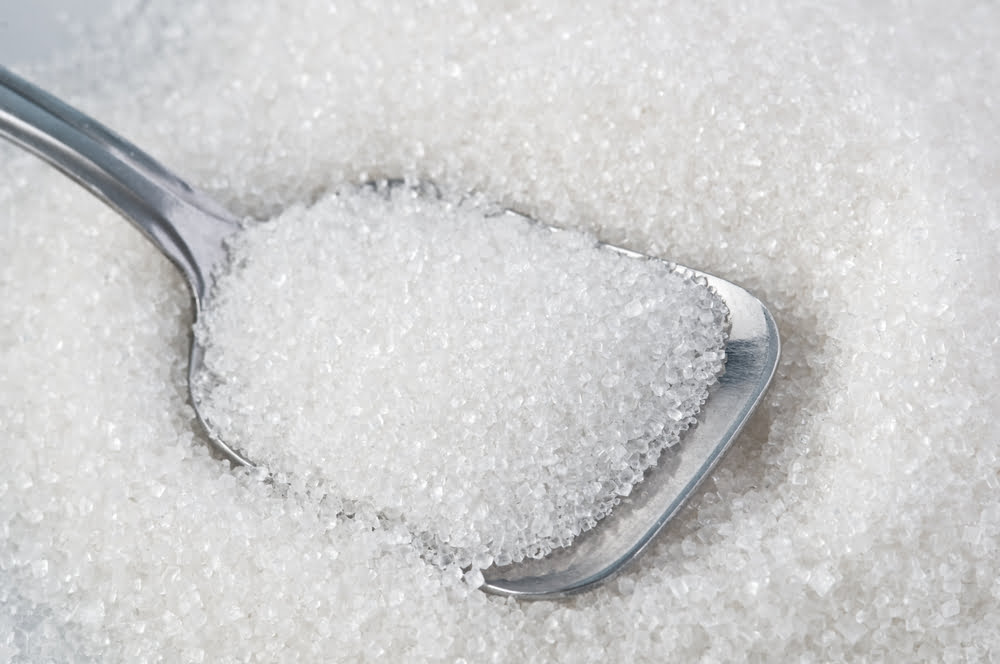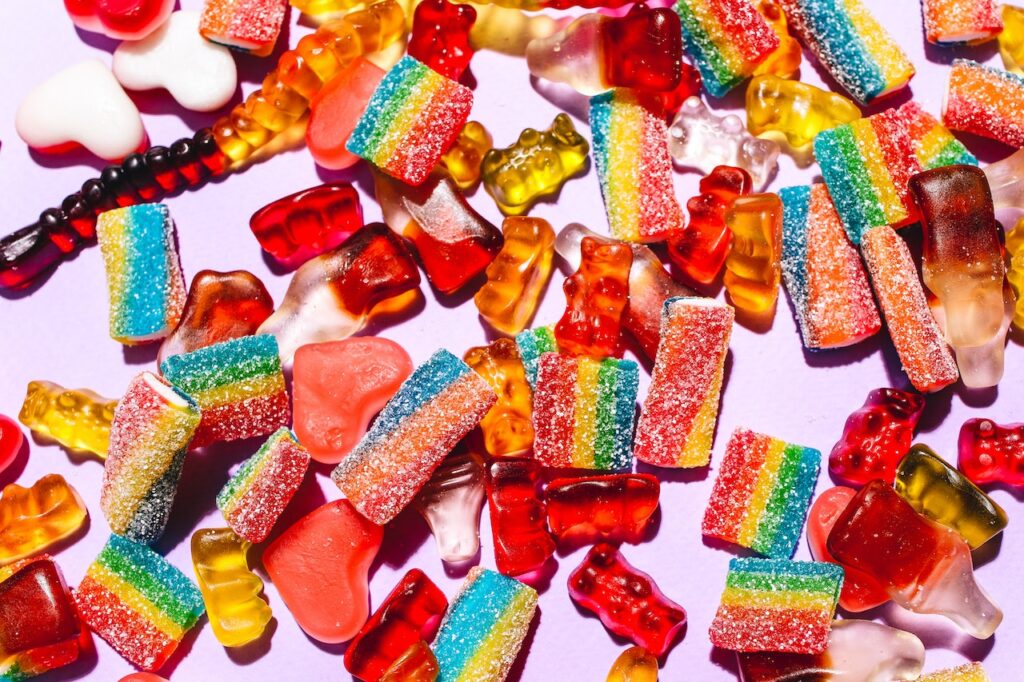One-to-one replacement for ice cream, baked goods, cereals, and sweets
For anyone looking for a sugar substitute, there are plenty of artificial and natural options available.
The problem is that natural sweeteners – like stevia – have a bitter and undesirable aftertaste, and are more expensive than regular sugar.
And it’s becoming increasingly clear that artificial sweeteners, like the sucralose used in Splenda and in baked goods, are harmful.

An Israeli startup believes it has the perfect one-to-one solution, with a product that contains just 30 percent sugar, but still looks, tastes and acts just like the real thing.
It is made up of 30 percent sucrose, and is combined with dietary fibers, like chicory, and ‘natural flavors’, which enhances the sweetness of the sugar by almost three times.
It’s going to be used in a variety of sweet products, from baked goods and cookies, to breakfast cereals and cereal bars, and chocolate and gummies.

And even though it is two to three times more expensive than conventional sugar, it is cheaper than other leading sugar substitutes on the market.
The substitute is already being used in Nestlé-Froneri’s low-calorie ice cream bars, which are currently sold in Israel.
Resugar, the company behind the sweetener, won’t disclose the origin of these ‘natural flavors’, but says they’re a natural compound that only makes up five percent of the entire solution.

On an ingredients list, the solution is listed simply as fibers, sugar, and natural flavors.
“We provide a complete solution for the food industry – you don’t have to reformulate anything”, says Dr Michael Zviely, VP of R&D at Resugar.
“Just take out your sugar, and put in Resugar in the exact same way. That’s what’s fantastic about it.”
Its solution is a ‘plug-and-play’ sugar substitute – meaning, food manufacturers of baked goods, sweets, and everything in between can use it instead of sugar without needing to alter their formulas.
It’s a one-to-one replacement, so they can simply substitute the same quantity of Resugar for conventional sugar.

“We are trying to solve the sugar abuse in the world,” he says.
The sugar that food manufacturers have added to soft drinks, flavored yogurts, baked goods and processed foods – even in items that you may not have thought of, like soups, bread, and cured meats – is incredibly unhealthy.
Too much added sugar can increase the risk of heart disease, high blood pressure, weight gain, diabetes… the list goes on.
In light of this, as well as the sugar taxes levied by at least 10 European countries, food manufacturers have tried to use other sugar substitutes.
Sign up for our free weekly newsletter
Subscribe
But none have been able to replicate its moisture, color, volume, freezing point, and most importantly, its taste. And because the substitutes lack sugar’s functionality, they need to opt for different formulas.
There is mounting evidence that artificial sweeteners are harmful. Research has found that people who consume large amounts of aspartame (found in sweeteners Equal and NutraSweet, and in cereals, yogurt, candy, and diet soda) have a higher risk of stroke.
And people who consume high quantities of sucralose – found in the sweetener Splenda as well as baked goods, ice cream, canned fruit, flavored yogurt, and syrup – have a higher risk of heart disease.
Natural alternatives, like maple syrup, agave, and even healthier substitutes like stevia and monk fruit, don’t have the same properties as sugar. This makes it trickier to replace them with sugar in the production of food.
But processes related to minimizing their production result in a higher price in comparison to sugar or artificial sweeteners.

Stevia, for example, has a bitter and undesirable aftertaste. Monk fruit, which is native to South Western China, comes from fruit pulp, but the extraction and production cost makes it hard to adopt on a wide scale.
“The replacement is one-to-one, which is very good for the producers, because for example, if you take milk chocolate, which contains 50 percent sugar, you can simply take out this sugar, and replace it with 50 percent Resugar,” Zviely tells NoCamels.
“If you just take for example another sweetener like stevia, you cannot replace it in the same fashion, because even a small amount is very, very sweet.
“It also has other functionalities. Sugar is very important in ice cream production because it lowers the freezing point of water. If you don’t use sugar, and try to freeze ice cream, you will get crystals, which is not a pleasant experience.”

Resugar is also partnering with an Israeli food manufacturer. Soon, the sugar substitute will be used in its dairy product line.
It now has a producer in the US, in Chicago, which will produce Resugar in large quantities.
It is also researching and developing a naturally occurring disaccharide that is as sweet as sugar, but cannot be decomposed by our body.
“With regular sugar, we have an enzyme that breaks the bond between glucose and fructose, and then we get the energy from the sugar, as well as all of its other impacts.

“We don’t have an enzyme in our body that can break up the new disaccharide, which is still in R&D. So our body will not metabolize it.”
Meaning, people will be able to enjoy the taste of sugar without raising their blood sugar or receiving any negative effects from it.
And in the future, it may consider selling its sweetener directly to consumers.
Related posts

Editors’ & Readers’ Choice: 10 Favorite NoCamels Articles

Forward Facing: What Does The Future Hold For Israeli High-Tech?

Impact Innovation: Israeli Startups That Could Shape Our Future




Facebook comments